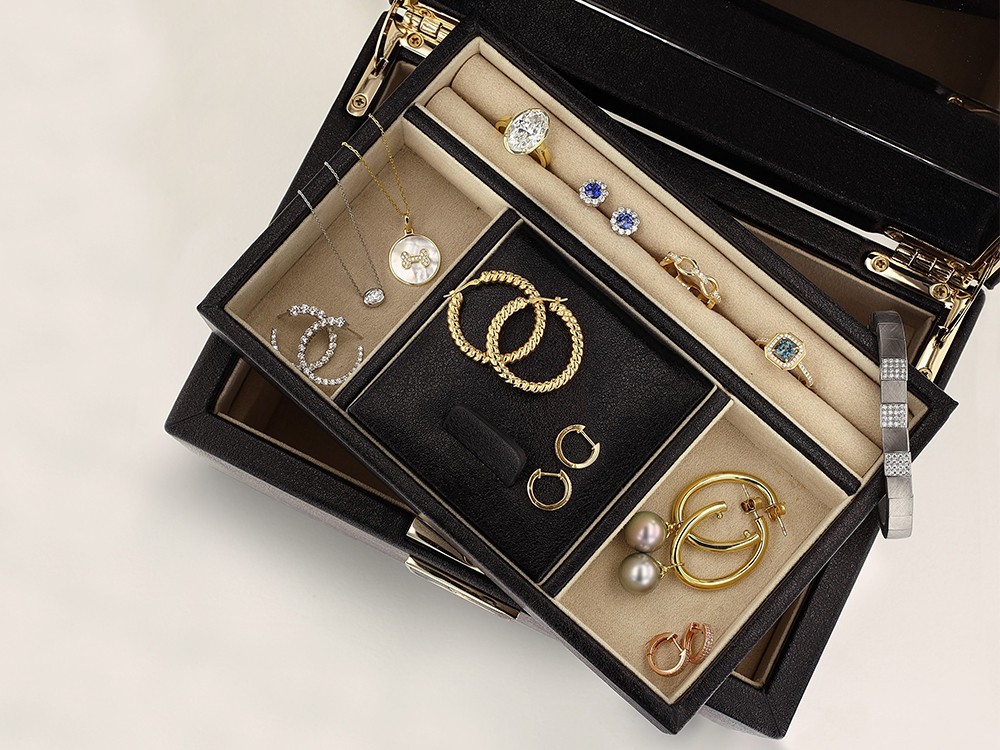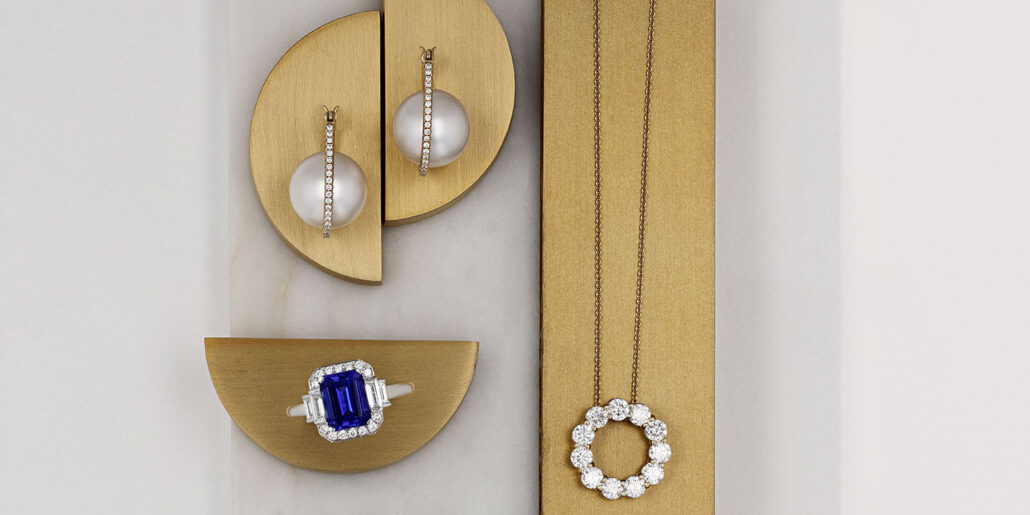We’ve put together some simple and practical tips to help you keep your fine diamond, metal and gemstone jewelry clean, sparkling and in good condition. Though this guide covers day-to-day situations, we recommend you consult a gemologist or jeweler for the best cleaning procedure for your particular jewelry piece at the time of purchase.
Cleaning Your Jewelry
- Be sure to visually inspect your jewelry before cleaning to be sure all stones are secure in their mountings. If in doubt, have a trusted jeweler inspect the piece and perform any necessary maintenance.
- When cleaning jewelry over a sink or lavatory, close the drain before beginning.
- It’s safe to clean almost all fine jewelry using a mild soap and water solution and a soft brush. Gold and sterling silver are delicate and can be scratched, so always polish with a clean, soft cotton cloth and never use abrasive cleansers.
- Commercial jewelry cleaners are safe for most stones, but be sure to read the label carefully before using any commercial cleaner, especially on delicate stones such as pearls or opals.
- Be extra careful with ultrasonic cleaners. Some gemstones are fragile and can be damaged by ultrasonic cleaners, and a stone that is not secure in its setting could come out during the cleaning process. Always thoroughly rinse and dry your jewelry, then polish it with a soft cloth after cleaning and before storage.
- If your all-metal piece becomes badly tarnished, it may also be cleaned with commercial silver jewelry cleaner or any traditional silver cleaner. Do not use commercial silver cleaners on gemstone pieces, as they may damage the stones. Use a silver polishing cloth only. If your silver jewelry becomes badly tarnished and will not clean up with a silver polishing cloth, it may require professional cleaning.
Wearing Your Jewelry
- Apply all cosmetics, perfumes, lotions and hairspray before putting on jewelry – all of which can dull the sparkle of your jewelry. When it comes to jewelry, remember the rule, “last on, first off.”
- You should avoid wearing jewelry while swimming. Saltwater and chlorine may slowly erode the finish, polish and color of your fine jewelry.
- When performing household chores, remove any jewelry that could have direct contact with household cleaners before use or wear rubber gloves.
- Do not subject fine jewelry to sudden temperature changes.
- Consider your jewelry during your daily activities. Some stones are brittle and should not be worn during any other activity where the stone could be hit or damaged.
- Make sure to wipe your gemstones after wear to remove any chemicals, oils or perspiration.
Storing Your Jewelry
After wearing, wipe jewelry thoroughly with a soft, clean, slightly damp cloth and finish by polishing it with a soft, dry cloth. This will enhance the luster of the gemstones and ensure that your jewelry is clean before storage. Make sure to store jewelry pieces individually in soft pouches or fabric-lined compartments to prevent scratching. You may prefer to store pendants hanging on hooks in a jewelry box or lay them flat in a drawer or jewelry roll to avoid tangling. A quality jewelry box or travel case is highly recommended when storing jewelry at home or on the go.

Insuring Your Jewelry
Did you know that most homeowners’ insurance policies don’t adequately cover fine jewelry? Insurance laws vary from state to state and country to country, so it is important that you speak to your insurer and find out precisely what type and how much coverage you have on your fine jewelry and gemstones before a loss occurs.
Proper coverage begins with a proper appraisal. You should seek out a gemologist appraiser who has the training to write an appraisal that accurately describes your jewelry item because that description is what the insurance company will look at in the case of a loss, not just the appraised value.

